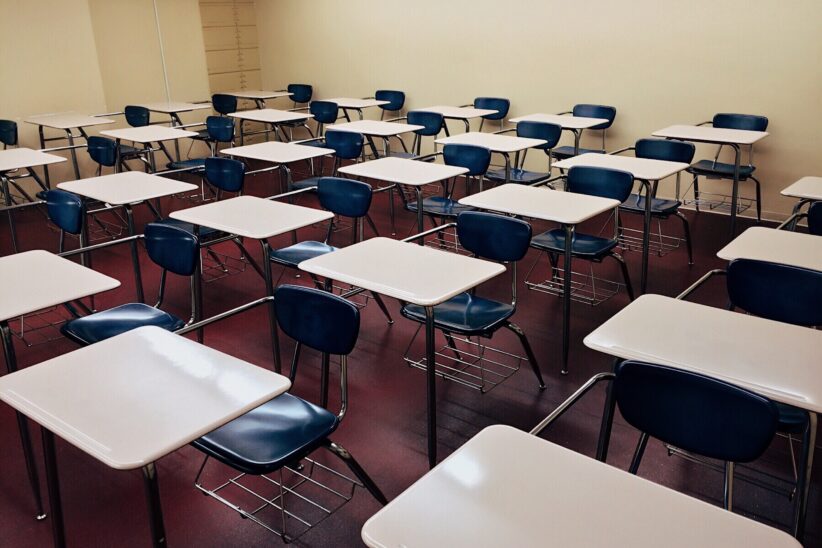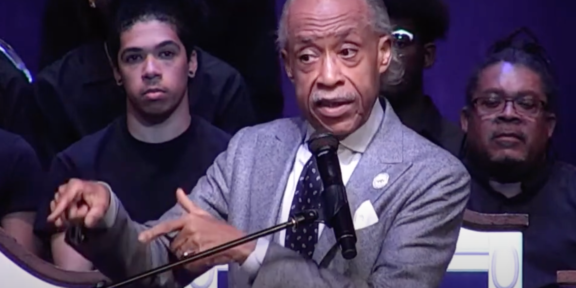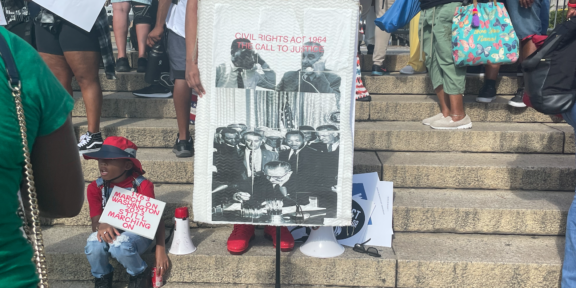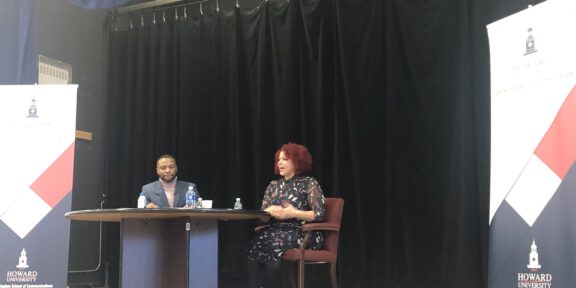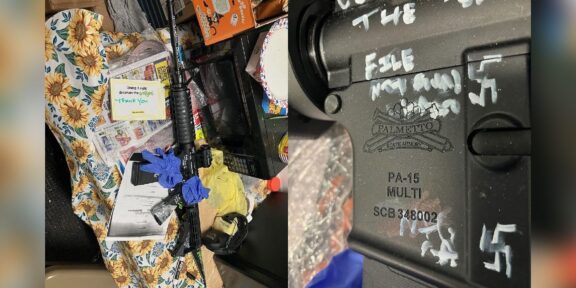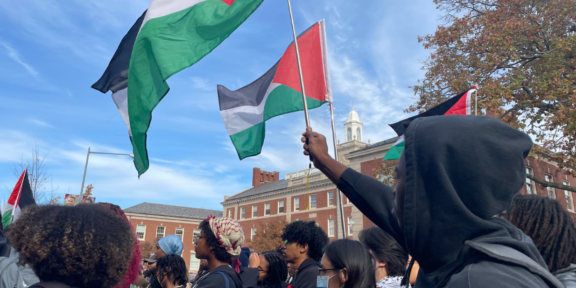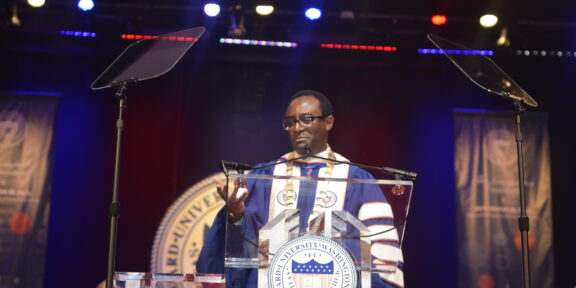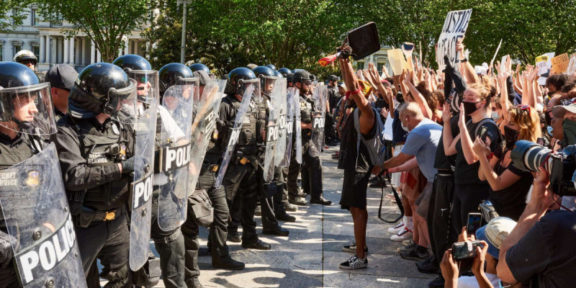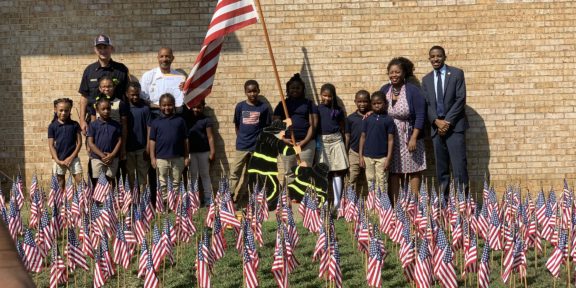By Alecia Taylor
Howard University News Service
As temperatures rose throughout the DMV area, an elementary school in Ward 4 felt every searing degree in some of its classrooms.
Some classrooms in Whittier Elementary School went without proper air conditioning during record-breaking heat this past week. Three classrooms did not have working AC. As a result they were given window air conditioners.
“Imagine a 4-year-old who’s hot,” said Angela Anderson, the president of Whittier Elementary School’s Parent-Teacher-Organization (PTO). “You have a whole set of complaints and falling out and the discomfort just looks different [than to a third grader].”
According to the National Weather Service, the behavior differences can be attributed to young children’s inability to regulate their body temperatures. With temperatures reaching the mid-to-upper 90s last week, one of the Pre-K classrooms felt like it was 100-degrees inside.
Work orders were sent for the classroom on Aug. 24, a week before the preschoolers started school. The work orders were not acknowledged until Tuesday, one of the hottest days in the city, according to Anderson. The District of Columbia Department of General Services (DGS) installed a window AC unit.
However there were still two other classrooms with older students that needed to be recharged.
Anderson said her intentions weren’t to trick DGS and D.C. Public Schools (DCPS), but she wanted to see if workers would check on other classrooms that were given temporary AC units. Contractors did not check other classrooms, according to Anderson, promoting another work order.
As the president of Whittier PTO and a parent of a student at the school, Anderson said her vision for the school is to have the same amount of education equity as the schools across the city, especially those in wealthier neighborhoods.
Parents and faculty have questioned why their facility is not as up to date and why their concerns aren’t addressed as quickly as schools in those areas.
DCPS referred to DGS to respond to HU News Service about the process of work orders at DCPS.
“DGS and DCPS have dispatched dozens of personnel over the last few days to address cooling issues that arise,” said Elliott Kozuch, public information officer for DGS. “[We are] closely monitoring school temperatures and providing temporary measures like window units and spot coolers if there is a wait to receive necessary parts to complete repairs.”
Kozuch referenced the DGS frequently asked questions page in regards to Anderson’s question on what is considered in need of immediate responses. There are three priority levels: emergency repair, high repair and maintenance repair. There are still three cooling issues scheduled for completion later this month, according to the DGS dashboard. It does not list the priority levels.
“They do the ‘Band-Aid’, is what I like to call it.,” Anderson said. “They’ll fix one component but not the entire component.”
Across the nation schools in predominantly Black areas face similar infrastructure issues, causing school closures on sweltering hot days and other causes of extreme weather. The Climate Action Campaign recently launched a school closure story map to keep track of closures due to extreme weather that can be traced back to climate change.
Flo McAfee, the president of Summerland Studio, a strategic communications firm focused on social impact issues, said schools with a high concentrated Black population may have the worst infrastructure.
“You’ll find with D.C. schools, a lot of schools are gonna have air conditioning issues and the worst infrastructure,” said McAfee. “That’s why you need to stay on the representatives, local and national, to improve health.”
Whittier, built in 1926, underwent major renovations in 1931 and 1937 to include eight more classrooms and an auditorium. However, Anderson said Whittier is due for a new facility because it is “literally falling apart.”
The Whittier modernization project is scheduled to begin in the 2024-2025 school year, according to a letter from Lewis Ferebee, the chancellor of DPS in November 2022.
The D.C. Advisory Neighborhood Commission 4B called for “urgent school building repairs” and “timely school modernization” in November of last year, citing issues that affected staff and students’ safety, and health. The last includes concerns over the past year such as a leaking roof in the school’s kitchen, a burst radiator, falling bricks and sewage and plumbing issues.
The commission also mentioned the school is non-compliance with the American Disability Act due to the lack of elevators
Like the lack of appropriate AC, some issues have directly affected the pre-schoolers at Whittier Elementary. The falling bricks happened on the preschool playground, sparking concerns from the PTO and community members.
Community members rallied last November to demand renovations to the school.
“We have to always bark in order for us to get the minimum of what we deserve,” Anderson said, “Education is a human right. And we shouldn’t be fighting for some of the basics, like health and safety.”
There are still three cooling issues scheduled for completion later this month, according to the DGS dashboard. It does not list the priority levels.
Alecia Taylor is a reporter for HUNewsService.com.

